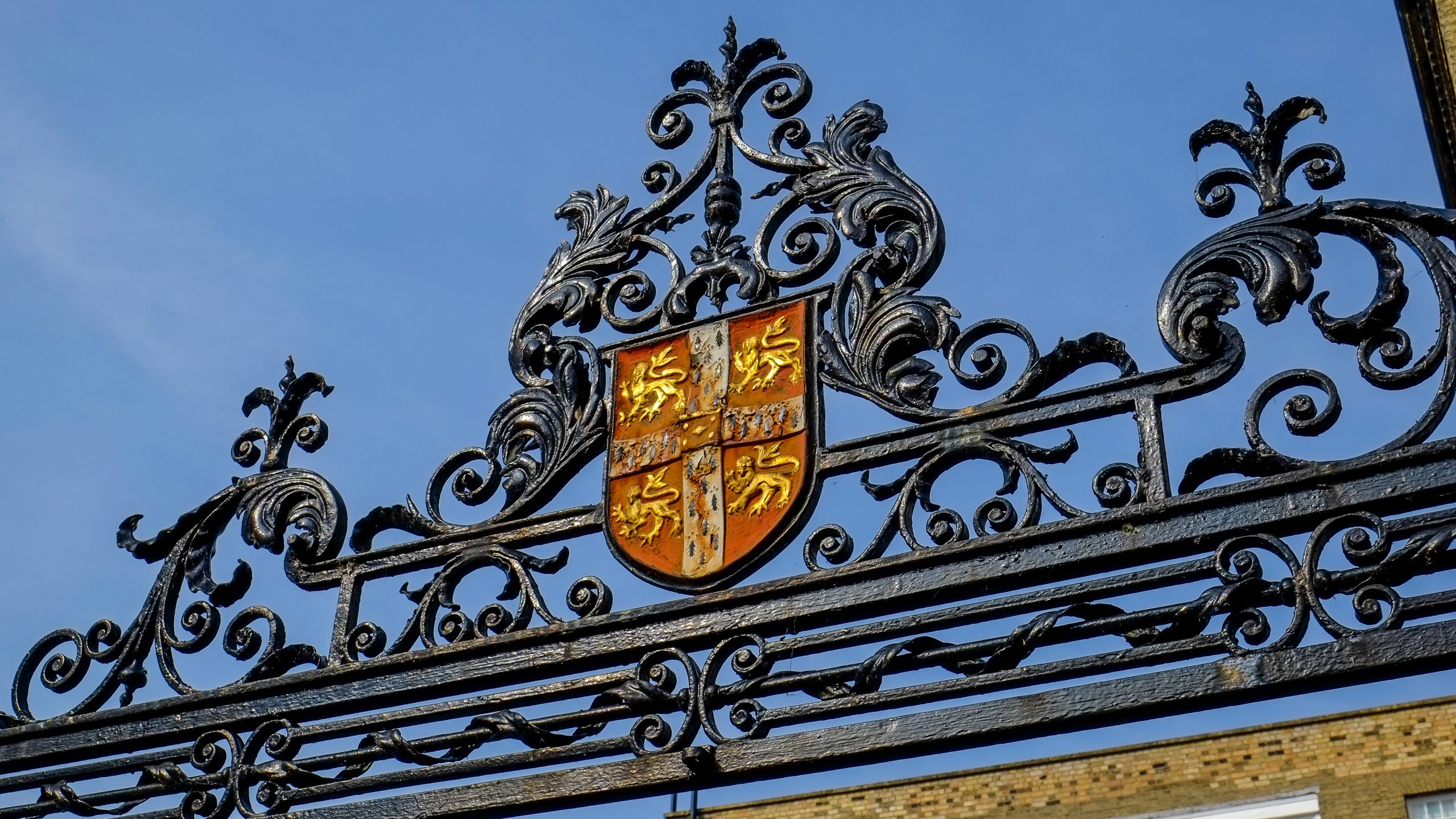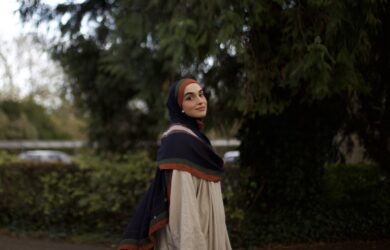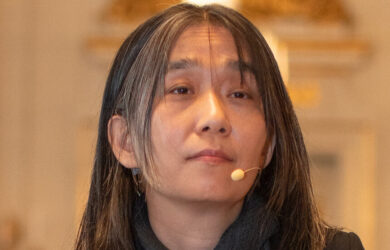
55 new scholars have been announced and will join 35 others to form the Gates Cambridge Class of 2017.
Gates Cambridge Scholars come from all over the world, but they have some important things in common: great leadership potential, a commitment to improving the lives of others and an unparalleled passion for learning.
Bill Gates
Fifty-five of the most academically exceptional and socially committed people from across the globe have been selected as Gates Cambridge Scholars after interviews in Cambridge in late March.
The Scholars will join the 35 US Scholars selected in late January to form the class of 2017, all of whom will take up the most prestigious international postgraduate scholarship at the University of Cambridge this October.
The 90 new Scholars represent 34 nationalities and include the first Scholars from Bosnia and Herzegovina and Luxembourg – and the first Native American Scholar.
Scholarships were awarded to 50 women and 40 men from a wide range of backgrounds. Forty-one will study for a master's degree and 49 will pursue a PhD.
The Gates Cambridge Scholarship aims to identify and select applicants who are academically outstanding and are likely to be transformative leaders across all fields of endeavour.
Competition for the Scholarships is fierce. The 90 new Scholars were selected from a total pool of around 6,000 applicants on the basis of their intellectual ability, commitment to improving the lives of others, leadership potential and academic fit with Cambridge. Departments in Cambridge nominated 424 candidates for the Scholarships and, of these, 202 were interviewed in the US and Cambridge by four panels of interviewers drawn from across the University.
“Gates Cambridge Scholars come from all over the world, but they have some important things in common: great leadership potential, a commitment to improving the lives of others and an unparalleled passion for learning,” said Bill Gates, co-chair, Bill & Melinda Gates Foundation. “Melinda and I are pleased to welcome the class of 2017. We have no doubt they will have an incredible impact on topics of global importance.”
The new Scholars include:
– Minaam Abbas from Pakistan who will do a PhD in Pathology focusing on brain tumours, specifically the cryptic world of RNA and DNA modifications which he says could hold ground-breaking implications for future therapeutics. Minaam is co-founder of a cancer therapeutics and drug delivery bio-start-up, angioClast, which is developing a sophisticated treatment strategy for vascularised tumours.
– Marina Velickovic, the first Gates Cambridge Scholar from Bosnia and Herzegovina, who will do a PhD in Law. She has co-authored two books and co-founded the only feminist magazine in Bosnia and is currently a Visiting Fellow at Goldsmiths College, where she is working on a feminist critique of the legal discourse surrounding Conflict-Related Sexual Violence. Her research at Cambridge on International Criminal Law will look at the International Criminal Tribunal for the former Yugoslavia through the lens of gender and ethnicity.
– Sandile Mtetwa from Zimbabwe who will do an MPhil in Chemistry focused on improving the properties of photo active materials used in the process of harnessing clean energy. She is Founder of the Trust Simuka-Arise Initiative in Zimbabwe, which aims to empower young women academically, socially and economically.
– Norman Wray from Ecuador who will do an MPhil in Conservation. The Constituent Assembly Member once stood for President of Ecuador. He is a strong advocate of the “Buen Vivir” (Good Living) regime, the rights of nature and for the inclusion of access to water as a human right in the Constitution of Ecuador. His MPhil will develop a nature-based, evidence-led approach to the resolution of social, economic, ecological and political problems.
– Thierry Mousset, the first Gates Cambridge Scholar from Luxembourg, who will do a PhD in German. Thierry has worked as an assistant director and dramaturge at numerous world-leading theatres and his PhD will explore the use of non-dramatic texts by W.G. Sebald, Mathias Enard and Orhan Pamuk in contemporary stage performances. He says: “I believe that in the current political climate, informed by a sharp rise in anti-Muslim and nationalist rhetoric, it is more important than ever to remind ourselves of the shared history of the two sides of the Mediterranean.”
Cambridge Vice-Chancellor and Chair of the Gates Cambridge Board of Trustees, Professor Sir Leszek Borysiewicz, recognised the transformative nature of the Gates Cambridge programme and its excellent fit with the University. He said: “Cambridge is a global university and the Gates Cambridge programme epitomises both its international, outward-looking nature and its mission to tackle global challenges and to improve the lives of others. I am delighted that the programme is thriving and having the impact that both the University and the Bill and Melinda Gates Foundation hoped it would. The selection of another intake of outstanding young Scholars shows philanthropy and education at their most transformative. ”
Professor Barry Everitt, Provost of the Gates Cambridge Trust, added: “As Provost overseeing admissions to the Gates Cambridge Scholarships, and as Chair of the Biological Sciences interview panel for the last four years, I am continually delighted by the embarrassment of riches we have to choose from and the incredible quality – and diversity – of the Scholars we select. This is certainly true for the 90 Scholars who make up the class of 2017. They are remarkable and inspiring individuals who have shown academic excellence and a clear commitment to improving the lives of others – key Gates Cambridge section criteria. We look forward to welcoming them in October and to seeing their impact at Cambridge and beyond.”
Biographies of all 90 Scholars are available from the New Scholars page.
The new Class of 2017 includes:
– Saloni Atal from India who will do a PhD in Psychology which will look at innovative and culturally appropriate solutions to tackle the problem of gaps in access to mental healthcare in India. In partnership with local non-profit organisations, her PhD will assess the impact and feasibility of training non-specialists, particularly community health workers, to support the mental health needs of slum-dwelling women.
– Stefan Hosein from Trinidad and Tobago who will do a PhD in Computer Science which will bring together his interests in Artificial Intelligence and education. He is the co-founder of a non-profit organisation in Trinidad called Escape Velocity, which seeks to inspire local underprivileged children to learn about science. His PhD will use Natural Language Processing to help students doing online courses.
– Leena Dahal from Nepal who will do an MPhil in Modern South Asian Studies which will explore identity and intersectionality in the context of South Asia, specifically how social media helped or hindered nuanced discussion of nationalism and identity in response to the 2015 unofficial border blockade between Nepal and India. Leena was born in Nepal but raised between Nepal, Cambodia, Laos, Bangladesh and Indonesia.
– Erica Gaston from the USA who will do a PhD in Politics and International Studies. She has testified before the US Senate and NATO on international and national security issues and the implications of security strategies for human rights. Her research will explore whether the control mechanisms that external actors establish when working with local or hybrid security forces can successfully mitigate the risks and costs of doing so. She says: “Whether or not such mechanisms work has significant implications for local civilians in an increasing number of areas, and for international security strategy as a whole.”
– Alicia Stevens from the USA who will do a PhD in Archaeological Heritage and Museums which will look at differing discourses of cultural heritage in Myanmar after sanctions and what they tell us about community uses of heritage in recovery, identity and remembrance. Her research will also examine international interventions in Myanmar’s post-sanctions period. Stevens has worked at the Smithsonian Institution and the American Museum of Natural History and travelled to Myanmar (Burma) when it was under military rule and international sanctions to promote the protection of the country’s natural and cultural resources in collaboration with the United Nations Office of the Secretary-General.












